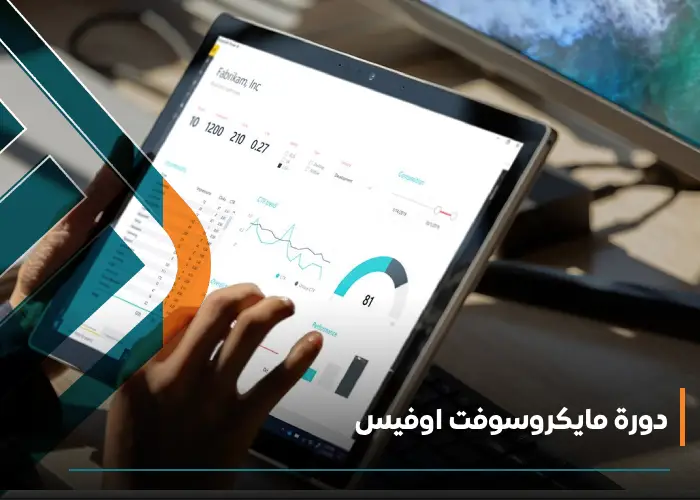Program Objective:
Developing the trainee's ability to prepare a media campaign efficiently.
Skills the Program Aims to Develop:
The ability to efficiently prepare a media campaign.
Objectives:
-
Media campaigns: Their nature, types, and methods.
-
Stages of preparing a media campaign.
-
Managing and evaluating a media campaign.
Outcomes:
Upon completing the training program, the trainee is expected to be able to:
-
Define the objectives of the media campaign.
-
Recognize the types of media campaigns.
-
Understand the steps to prepare a media campaign.
-
Identify the target audience for the media campaign.
-
Recognize the appropriate communication methods for the campaign.
-
Understand the suitable media content for the campaign.
-
Apply the necessary skills to manage the media campaign.
-
Identify the evaluation methods for the media campaign and how to plan it.
About course
If you seek to learn how to prepare successful media campaigns that influence public opinion and achieve your media goals, this course is the first step towards developing your skills in this vital field. In this Media Campaign course, you will learn the fundamentals and various stages that every successful media campaign goes through, from analyzing the target audience to determining the appropriate media messages and selecting the most effective media channels.
We will cover media campaign strategies that ensure you reach the largest number of your target audience using modern tools and techniques. In addition, you will learn how to monitor and evaluate media campaigns to achieve the best results and ensure the success of your media strategies.
The course will also include practical case studies and live examples, helping you effectively apply what you've learned in any media campaign you may manage in the future.
The Concept of a Media Campaign and Its Objectives
A media campaign is a coordinated strategy aimed at delivering a specific message to the target audience through various media channels to achieve a specific impact. The importance of preparing media campaigns lies in the fact that they are a powerful tool for increasing awareness, changing behaviors, or enhancing a certain image in society. Whether the campaign is commercial, political, or social, the main goal is to impact the audience in a tangible and effective manner.
Objectives of a Media Campaign:
-
Increasing Brand or Cause Awareness: The main objective of most media campaigns is to raise awareness among the audience about a product, service, or specific cause.
-
Changing Behaviors: By designing well-thought-out media campaigns, it is possible to influence people's attitudes and behaviors towards a certain topic.
-
Enhancing Reputation: Many campaigns aim to improve the image of an organization or product and enhance its credibility in the eyes of the public.
-
Achieving Sales or Immediate Response: Some media campaigns aim to generate immediate sales or a quick response from the audience, such as promotional or discount campaigns.
The Importance of Defining Media Campaign Objectives
When preparing a media campaign, it is crucial to clearly define the objectives to ensure its effectiveness. A campaign cannot be successful without clear goals and a way to measure its success. These objectives could be short-term, such as increasing engagement on social media platforms, or long-term, like changing social perceptions.
Preparing media campaigns requires careful planning and the selection of appropriate tools and means to ensure that the set goals are achieved. Using effective strategies to analyze the target audience, determine the appropriate media messages, and select the right media channels can help any media campaign achieve the desired success.
Types of Media Campaigns
Media campaigns are essential tools used by companies and organizations to communicate with their audience and achieve their goals. The types of media campaigns vary depending on the desired goal, whether it is product promotion, raising social awareness, or changing behaviors. In this article, we will explore the most common types of media campaigns used in today's media world and how to prepare them for maximum success.
-
Promotional Media Campaigns
The primary goal of promotional media campaigns is to increase sales or interaction with products or services. These campaigns typically involve advertisements through various media channels such as television, radio, and social media platforms. These campaigns aim to attract the audience's attention and encourage immediate actions such as purchasing the product or visiting the website.
-
Awareness Media Campaigns
Awareness campaigns aim to raise awareness about a specific social or health-related issue. For example, these campaigns could focus on issues such as environmental awareness, public health, or education. Awareness campaigns are important tools for empowering the community to make more informed decisions about topics that affect their daily lives.
-
Political Media Campaigns
Political media campaigns aim to influence public opinion and enhance support or opposition for a particular idea or political candidate. These campaigns are often an essential part of elections or the promotion of specific policies. Political campaigns rely on both traditional and new media channels to reach a wide number of citizens and persuade them about various political positions.
-
Commercial Media Campaigns
Commercial media campaigns are among the most common types in the business world. These campaigns focus on strengthening brand recognition, promoting products, or increasing customer loyalty. They often emphasize paid advertising, online marketing, and public relations to build a positive image for the brand and enhance audience connection with it.
-
Crisis Response Media Campaigns
Crisis response campaigns are used when there is a need to address emergencies or crises that affect the reputation or public health. These campaigns require quick and comprehensive responses by utilizing accurate data and delivering clear messages to the public to manage the situation and minimize the damage.
Stages of Preparing a Media Campaign
Preparing a media campaign is a strategic process that requires careful planning and thoughtful execution to ensure the desired objectives are achieved. By properly preparing media campaigns, organizations can effectively reach their target audience, change their behaviors, or raise awareness about the cause they support. Below are the essential stages of preparing a media campaign to ensure its success:
-
Defining Objectives
The first step in preparing a media campaign is to clearly define the objectives. These objectives may vary, such as:
-
Increasing brand awareness.
-
Promoting a new product or service.
-
Changing societal behaviors or raising awareness about social issues.
Defining the objectives forms the foundation on which all other campaign efforts are based.
-
Analyzing the Target Audience
After defining the objectives, careful analysis of the target audience is necessary. This includes understanding the audience's characteristics, such as age, gender, interests, geographic location, and media preferences. By using modern analytical tools, marketers can determine where their audience spends time and how to reach them through the appropriate channels.
-
Defining the Media Message
The next stage in preparing a media campaign is defining the media message you want to convey. The message should be clear, impactful, and align with the values and needs of the target audience. Media messages should include engaging and directional elements that encourage the audience to interact.
-
Choosing the Appropriate Media Channels
Selecting the media channels to be used in the campaign is a key element for its success. The channels vary depending on the type of campaign and target audience and may include:
-
Traditional media such as television and radio.
-
Digital platforms like websites and social media.
-
Paid advertising such as Google Ads and Facebook Ads.
The choice of channels should align with the preferences of your audience to ensure the message reaches them effectively.
-
Executing the Campaign
Once the objectives, audience, message, and channels are defined, the execution phase of the campaign begins. At this stage, media activities should be organized, ensuring all advertising materials align with the campaign strategy. Distribution across selected channels and organizing the timing to ensure maximum impact are key to success.
-
Monitoring and Evaluating Performance
After launching the campaign, it is essential to monitor its performance. This includes tracking key performance indicators (KPIs) such as views, content engagement, and increases in sales or awareness. By using tools like Google Analytics, the effectiveness of the campaign can be assessed, and corrective actions can be taken if necessary.
Bader Technology Center: Practical Training on Media Campaign Preparation
If you want to improve your skills in preparing media campaigns, Bader Technology Center is the perfect choice for you. The center offers specialized training courses on media campaign preparation with accredited certificates, ensuring that you learn all the essential stages in a practical and professional manner.
Through hands-on training at Bader Technology Center, you will learn how to define campaign objectives, analyze the audience, create effective media messages, and choose the best channels, giving you the tools you need to launch successful media campaigns across various fields.


































